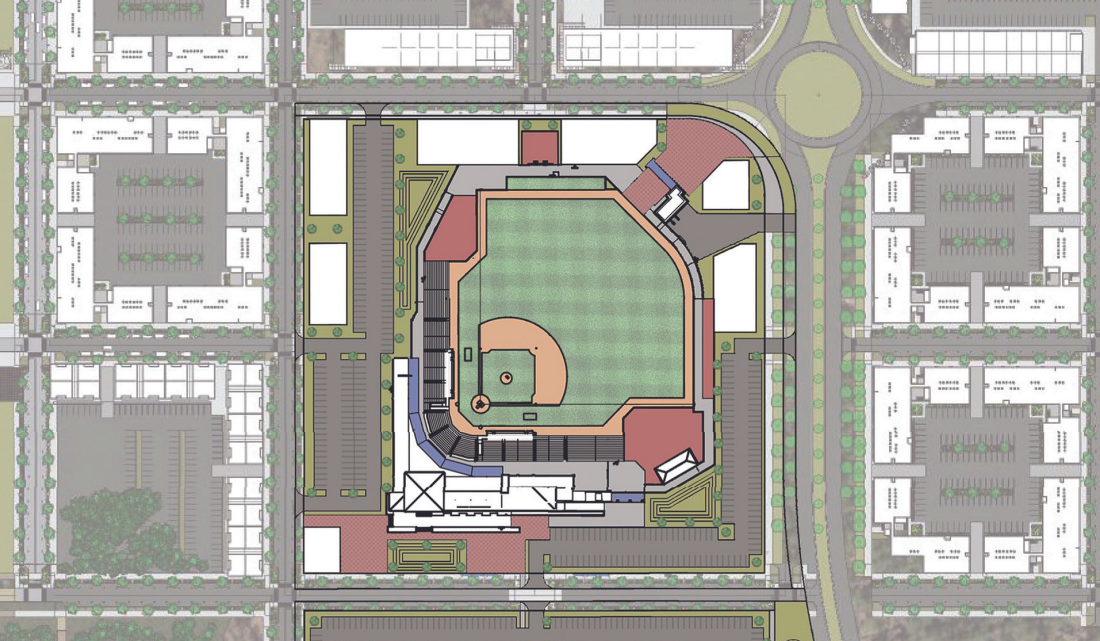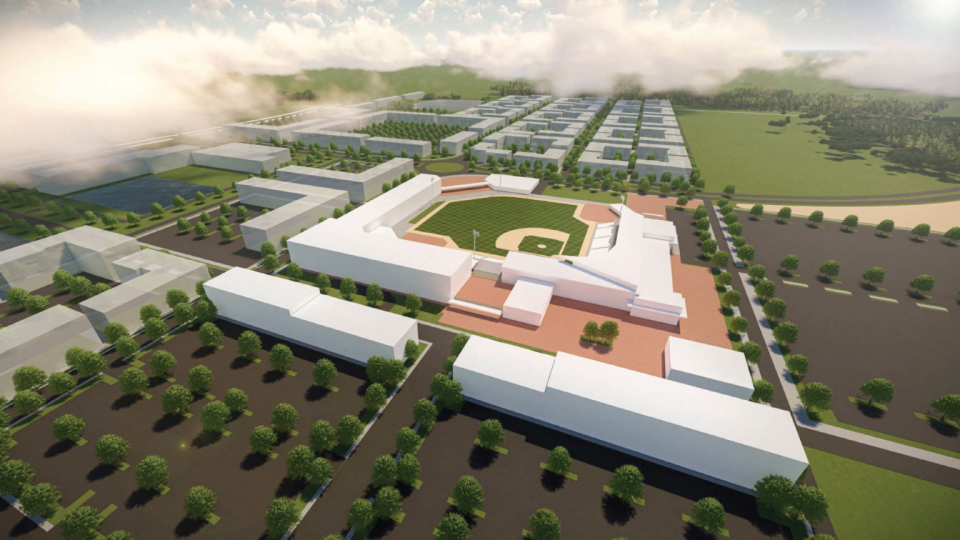Staring at a billion-dollar project, Leland keeps stadium and development proposal alive

Bringing minor league baseball to Leland could initially cost the town over $105 million, but the mixed-use development could generate billions of dollars in revenue and jobs.
Earlier this year, Leland officials announced they, along with Brunswick County officials, have been in talks with the owners of Major League Baseball's Texas Rangers and REV Entertainment about building a ballpark and entertainment complex along U.S. 17 near Brunswick Forest and Walmart.
Initial plans showed the development would sprawl some 1,400 acres and include restaurants, hotels and entertainment spaces surrounding the anchor sports stadium. Initial plans for the project proposed Brunswick County would pay to construct and own the stadium that would then be leased to REV Entertainment to bring a baseball stadium and surrounding development to the site.
Town leaders approved the use of $30,000 to pay for a feasibility study to assess the economic impacts of the proposed development. Shortly after that assessment was underway, Brunswick County leaders decided against moving forward with funding the project.
On Thursday, town staff presented the findings of the economic feasibility study, conducted by Chicago-based consulting firm Baker Tilly, to town council. The study found the preliminary cost for the 4,000-seat, 6,000-person capacity stadium would be around $59 million, plus a preliminary budget of $46 million for site preparation, infrastructure and on-site utilities.
The cost to construct the stadium, therefore, is estimated to cost $105.6 million. The town of Leland’s operating budget for the 2023-24 fiscal year is roughly $42.8 million.
The surrounding development, dubbed “Jackeys Creek Development,” is expected to leverage over 9,950 units of rental and home ownership development, over 400,000 square feet of proposed retail space, 650,000 square feet of proposed office space and just under 400 hotel rooms over 20 years.
The expected cost of the construction of the stadium and surrounding development is $2.39 billion.
The study also analyzed the potential economic impact of the development, finding the stadium and surrounding development could “bring about significant positive economic impacts to the region and be a major economic driver for job creation and economic output.”
The study concluded that the construction of the stadium and surrounding development alone would generate some 29,695 temporary direct, indirect and induced jobs, generating over $5.1 billion in economic output and labor income. The construction of the stadium alone is expected to generate millions in household income.
The firm’s financial analysis found that the estimated property tax revenue of the development is around $182 million over 30 years. Operating revenues generated by the stadium alone are estimated at $135 million in 10 years.

Barnes Sutton, economic and community development director for the town of Leland, said the project would provide quality-of-life elements to the town such as employment, education, recreation and accessibility.
“There’s a clear desire for Leland to create a place with community character that can become a destination,” Sutton said in a news release this week. “Residents have expressed that the focus of our economic development efforts should be to diversify options for retail, dining, high-paying jobs, and high-quality healthcare. This study is a major step to identify a path forward to do just that. Bringing something transformational to not just Leland, but the region, requires responsible long-term planning and innovative approaches to create something truly unique.”
Currently, the property is part of unincorporated Brunswick County. If the town decides to move forward and financially back the construction in part, the land could be annexed into the town of Leland.
Residents continue to express concern about the development, largely to do with potential added traffic along already busy U.S. 17 and the cost to the town.
STAY CONNECTED: Keep up with the area’s latest Brunswick County news by signing up for the Brunswick Today newsletter and following us on Facebook and Instagram.
No action was taken following the presentation at Thursday’s meeting. Town staff are set to continue planning for the development and update the town council at a later date.
Town staff are next expected to identify financing tools, evaluate available revenue, evaluate the potential impact on town services and further plan for the development.
Jamey Cross covers Brunswick County for the StarNews. Reach her at jbcross@gannett.com or message her on Twitter/X @jameybcross.
This article originally appeared on Wilmington StarNews: Leland keeps minor league baseball stadium proposal on the table

